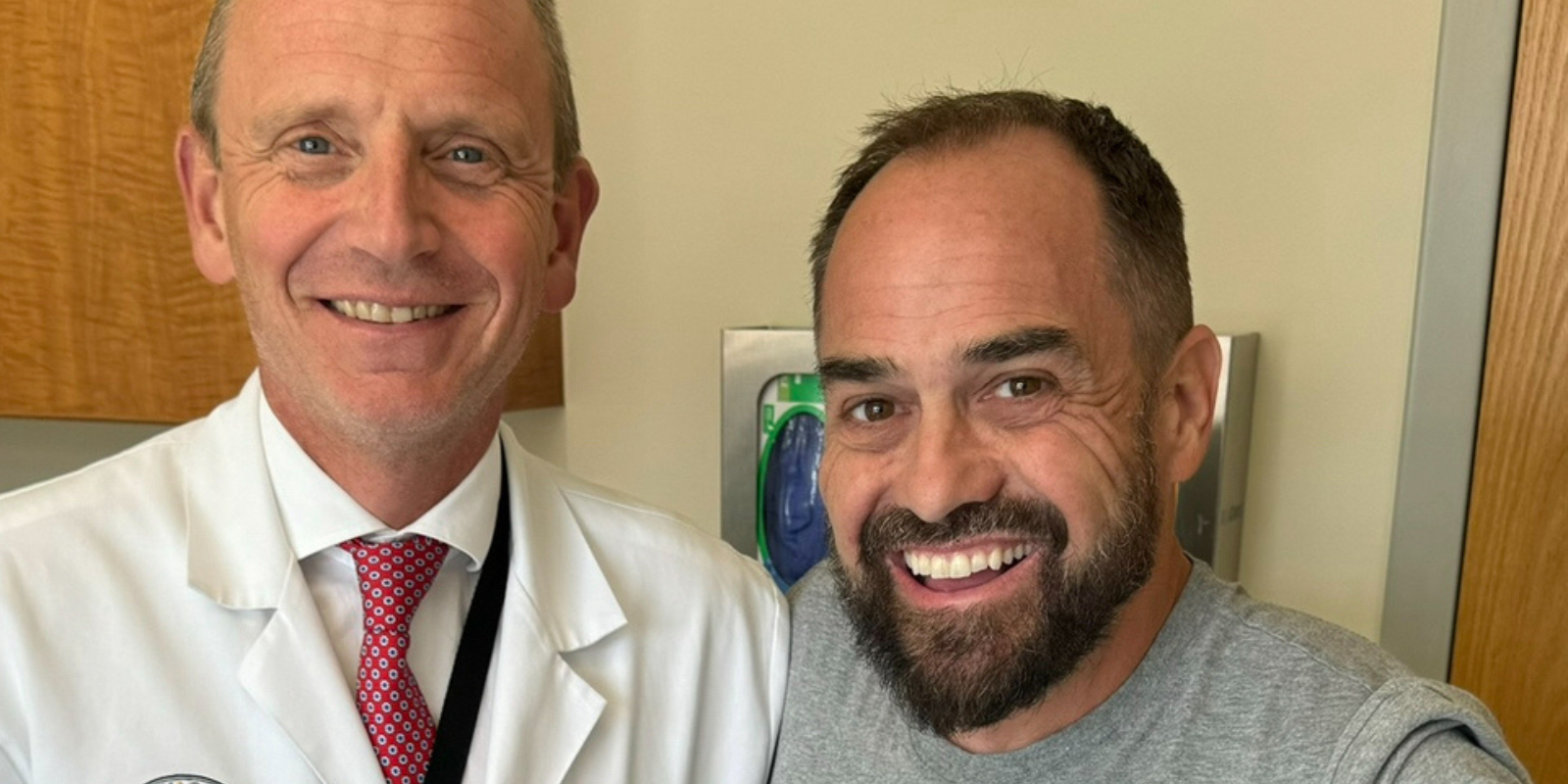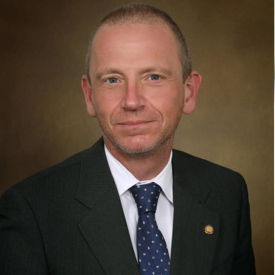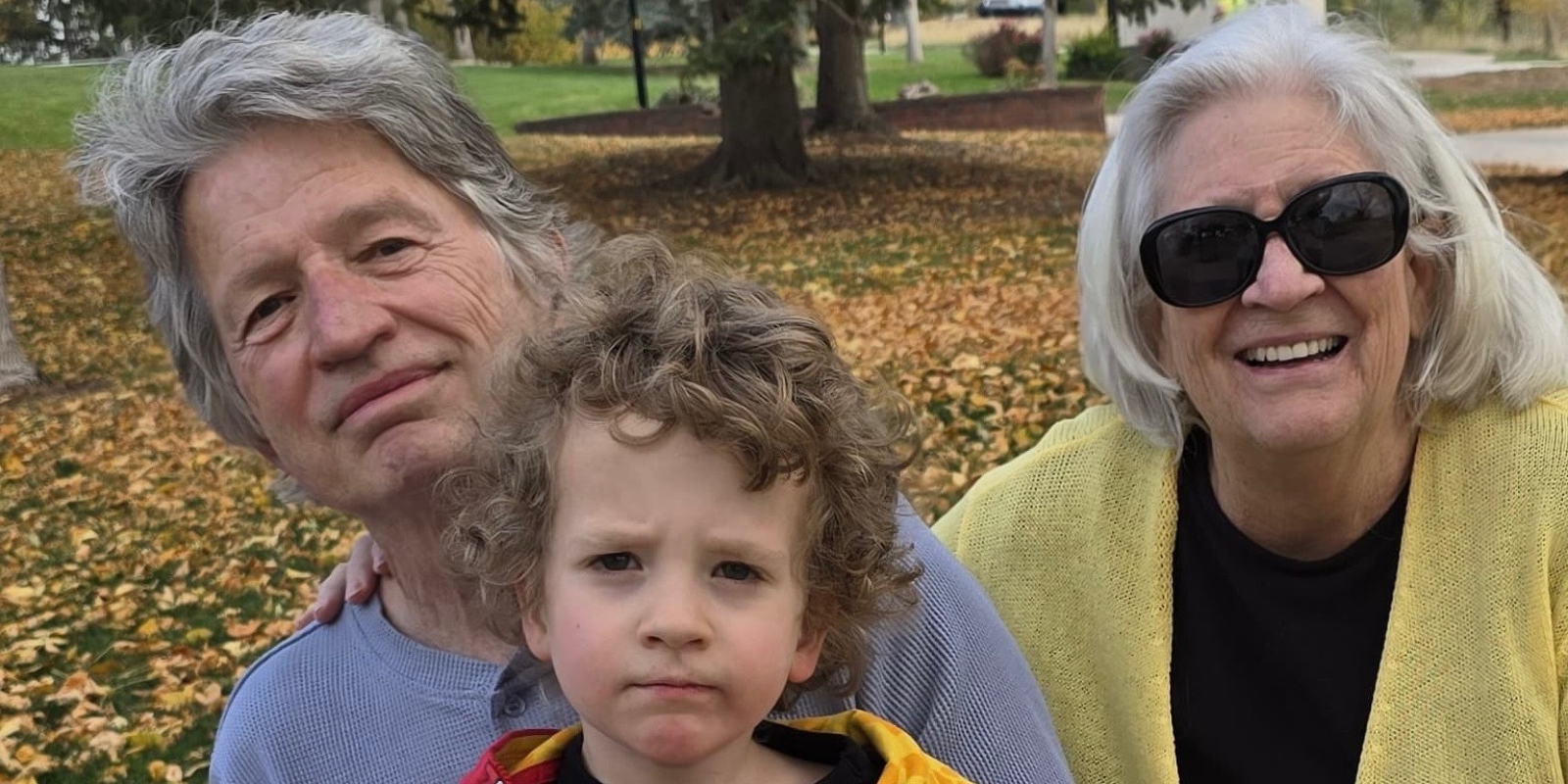If you’re going to get surgery for your cancer on a Friday the 13th, and your name is already Jason, you might as well lean into the coincidence.
At least that’s what Jason Patton thought in 2019, when he went in for surgery with Marco Del Chiaro, MD, PhD, professor of surgery and division chief of surgical oncology in the University of Colorado Department of Surgery.
“I came to the hospital that day dressed as Jason Voorhees from ‘Friday the 13th,’” says Patton, 47, who lives in Sheridan, Colorado. “I said, ‘Something’s happened to me, and I came here to kill cancer.’ Dr. Del Chiaro got a good kick out of it. He said, ‘The way you came in with that attitude? Those are the type of people who make it.’”
 Jason Patton arrived for his surgery dressed as Jason Voorhees from "Friday the 13th."
Jason Patton arrived for his surgery dressed as Jason Voorhees from "Friday the 13th."
Digestive disturbance
For Patton, the surgery came toward the end of a months-long ordeal that started with digestion problems. “I noticed I wasn't digesting food,” he says. “I'd eat a salad, and salad would just come out.”
A gastroenterologist ordered a CT scan and diagnosed Patton with pancreatitis, but that didn’t sound right to him. He pushed for a second opinion, and that’s when a second gastroenterologist found that the mass around his pancreas had doubled in size since the first scan.
“They said, ‘We’re referring you to UCHealth University of Colorado Hospital,’ and two weeks later, I went to see Dr. Del Chiaro,” Patton says. “They did a biopsy on September 4, and after that, he said, ‘You have a Whipple procedure scheduled for Friday the 13th.’”
Patton was diagnosed with ampullary cancer, a rare and aggressive cancer that forms in the area where the bile duct and pancreatic duct meet. When untreated, the cancer often spreads to nearby organs including the pancreas and liver.
The Whipple procedure, most commonly used to treat cancer on the head of the pancreas, is a surgery to remove the head of the pancreas, a portion of the small intestine called the duodenum, part of the bile duct, and the gallbladder. A loop of the small intestine is then brought up and sewn to the bile duct, stomach, and remainder of the pancreas.
It was a potentially life-saving surgery that might not have happened had Patton been satisfied with his original diagnosis of pancreatitis, Del Chiaro says.
“An important part of Jason’s story is the misdiagnosis at the beginning,” Del Chiaro says. “When I saw his scan, I saw that his pancreatic duct was dilated up to seven millimeters. It didn't look normal to me, and so I got the suspicion of a malignancy, so I asked him to do more investigation. He came here for chronic pancreatitis; we discovered a cancer.”
Recovery and chemotherapy
Patton set a record for recovery from a Whipple procedure, spending just six days in the hospital, then began six months of chemotherapy to ensure that any remaining cancer in his body was eradicated. His talent for dressing for the occasion once again came in handy.
“I started wearing really bright, fun Mickey Mouse shirts when I went to the chemo center,” says Patton, who describes himself as a huge Disney fan. “It got to the point where people were like, ‘I want to be by that guy.’ I started sitting in community rooms with the attitude of, ‘Yeah, let's do this!’ I wasn’t going to sit there for seven hours in a depressed state of mind. I tried to keep it upbeat, and I met so many people in there who were going through things. I got letters from family members who said, ‘My family member started doing better once they started sitting with you and talking to you.’”
 Patton and his partner, Mike, in Sydney, Australia, prior to a New Zealand cruise.
Patton and his partner, Mike, in Sydney, Australia, prior to a New Zealand cruise.
Del Chiaro says Patton’s positive attitude and willingness to push for a second opinion meant everything when it came to his care.
“If you act quickly to get a second opinion, sometimes that can save your life,” he says. “Now it's five years out, and he’s doing fine, having a normal life. If you treat cancer properly and in a timely fashion, there is hope.”
From dread to gratitude
September 13, 2024, is the five-year anniversary of Patton’s original surgery. He is currently living disease free, going in for checkups every six months to make sure the cancer hasn’t returned. When he looks back on the early days of his cancer journey, he remembers the uncertainty and dread that once filled his days.
“You go through so many emotions when you find out,” he says. “You're mad, you're angry, you're scared, upset, depressed — I still think about it probably every day, even if it's really brief. I might go by a park and think, ‘Look at the beautiful flowers I'm still here to see.’ I try not to focus on anything negative. I try very hard to tell people, ‘Look at the beauty in every day.’ I know the world's not all sunshine and rainbows, but focus on the positive, because you never know when something like this might happen."
Featured image: Jason Patton and Marco Del Chiaro, MD, PhD




.png)
.png)